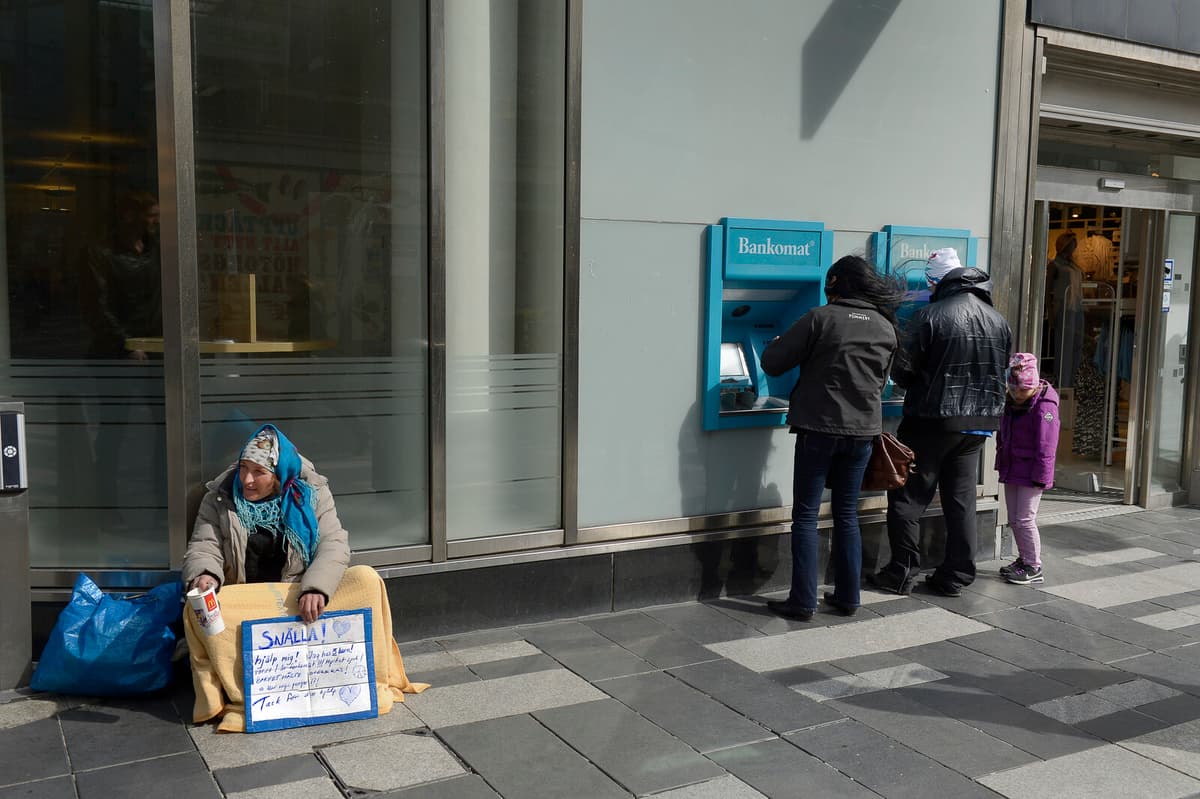Vulnerable people on their knees, with paper cups and handwritten cardboard signs begging for money quickly became a part of the Swedish urban landscape in the early 2010s.
At that time, there was a strong self-image in Sweden that we as a country do not criminalize poverty, according to Erik Hansson, lecturer at Uppsala University's cultural geography department, who has researched the Swedish relationship to begging.
There is a paradox, because there was an overall desire to get rid of signs of poverty, without having to ban it.
Being confronted with someone who is begging forces the person in question to ask difficult moral and psychological questions about themselves. Am I good or not?
It is emotionally demanding, regardless of what ideology you have, says Erik Hansson.
On Monday, the government's investigator Krister Thelin presented his investigation into a national begging ban, which concluded that such a ban is not needed.
Changed with the pandemic
In connection with the pandemic, the number of people begging decreased, according to both Erik Hansson and Elin Gert, who is operations manager at Stadsmissionen Örebro. But even after the world opened up again, the number of people begging remained lower than during the 2010s.
At Stadsmissionen in Örebro, a significant shift was noticed in the number of people who needed help, and last year they conducted a survey.
By partly seeking out people who had previously taken part in their activities, and asking where they had gone and why, as well as hearing from other city missions around Sweden, they found out that most had sought out other places in Europe.
The main reason was that there is no cash in Sweden anymore, says Elin Gert.
Several also testified that the social climate had become much tougher in recent years in Sweden.
It went from being ignored, or at least talked to a little, to being directly insulted by people coming out of grocery stores.
”Become more driven away”
According to Erik Hansson, much changed already in 2018, when individual municipalities, with Skåne's Vellinge in the lead, pushed through the possibility of applying Sweden's existing public order law to ban "passive fundraising".
After that, the debate about whether begging bans go against the Swedish image of a welfare country or not subsided, he says.
They become more driven away by security guards and police, even if they haven't done anything, says Erik Hansson.
But the need among the vulnerable is not believed to have changed for the better. Many of those who remain in Sweden are thought to rather collect cans, or seek out the black labor market.
The underlying problem is not gone. There are still people living in vulnerability. You have just moved the problem, says Elin Gert.
Sophie Tanha/TT
Facts: No need for begging ban
TT
According to a compilation from Sweden's former begging coordinator, there were 4700 vulnerable EU citizens in Sweden in 2015.
The overall picture from authorities, county administrative boards, and municipalities now is, according to an investigation presented on Monday, that the proportion of people begging has decreased by at least three-quarters in recent years.
The investigation, which Krister Thelin conducted at the request of the government, concludes that there is no need for a national begging ban.
Municipalities already have the opportunity to introduce begging bans in certain areas, which, according to Thelin, works well.
The assignment included "regardless of stance" to submit a proposal that means begging is banned. The investigator has therefore presented a proposal for such a law change.
If the Tidö parties proceed with the proposal, it can be introduced on July 1, 2026.






